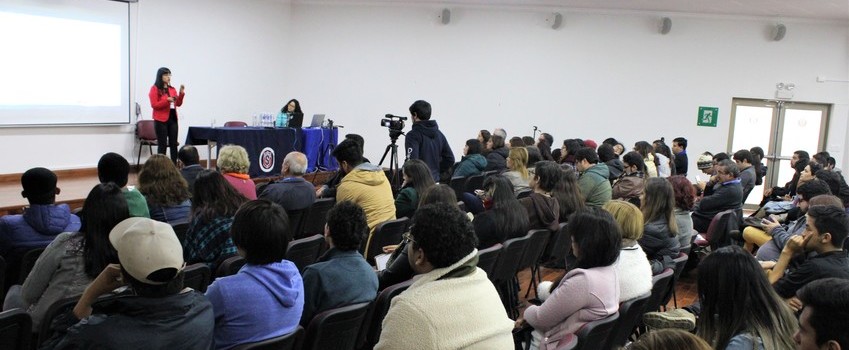
The initiative was carried out with the objective of bringing closer and making visible the work carried out by researchers in the area.
Just three months after the arrival of one of the astronomical phenomena most anticipated by scientists and the community of the Coquimbo Region, the total eclipse of the sun, the University of La Serena got in tune by developing the first Directed Astronomy Conference to students of pedagogical careers and teachers of the school system. The event had the participation of various national and international researchers, who reflected on the topic and the importance it has in education.
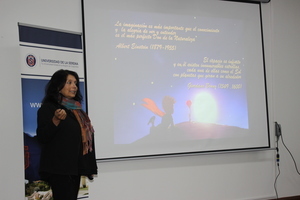 The day was born from the interest of the students of the Pedagogy in Mathematics and Physics degree, as a way to delve deeper into the topic of astronomy in their academic spaces. “We are very happy to be able to connect with students and teachers, because one of the ways to improve education is precisely by doing more science and translating it into scientific knowledge that can be transferred to the future citizens of the country. We must awaken that critical spirit in them, but giving solutions to those difficulties that arise when teaching science,” emphasized academic Marcelo Jaque, who was part of the organizers of this initiative promoted by the Department of Physics and Astronomy and supported by various institutional units.
The day was born from the interest of the students of the Pedagogy in Mathematics and Physics degree, as a way to delve deeper into the topic of astronomy in their academic spaces. “We are very happy to be able to connect with students and teachers, because one of the ways to improve education is precisely by doing more science and translating it into scientific knowledge that can be transferred to the future citizens of the country. We must awaken that critical spirit in them, but giving solutions to those difficulties that arise when teaching science,” emphasized academic Marcelo Jaque, who was part of the organizers of this initiative promoted by the Department of Physics and Astronomy and supported by various institutional units.
The activity was attended by students from different pedagogical careers in the scientific area, who actively participated in the different talks given by the experts. “These sessions open up a new vision for us about astronomy, which is very relevant as teachers in training, since, as there are very technical topics, it allows us to generate new knowledge and learn new ways of transferring these subjects,” said Joaquín. Gutiérrez, student of the Mathematics and Physics Pedagogy degree at the university.
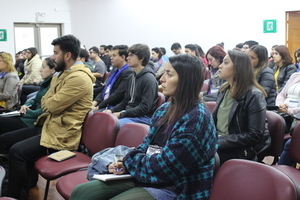 Furthermore, one of the purposes sought by this instance was to be able to achieve a link with the environment on the part of scientists and bring these topics closer to current teachers, who are in charge of transmitting this scientific knowledge in their classrooms. “These spaces are an excellent opportunity to access the cutting edge in the area of astronomy. Furthermore, as teachers we have the task of focusing on how we are transferring this research in our classes, we must do it in a didactic and entertaining way, that is of interest to current generations, and this day gives us an alternative and hopefully it will be repeated “said the Ped graduate. in Biology and Natural Sciences, Claudia Farías.
Furthermore, one of the purposes sought by this instance was to be able to achieve a link with the environment on the part of scientists and bring these topics closer to current teachers, who are in charge of transmitting this scientific knowledge in their classrooms. “These spaces are an excellent opportunity to access the cutting edge in the area of astronomy. Furthermore, as teachers we have the task of focusing on how we are transferring this research in our classes, we must do it in a didactic and entertaining way, that is of interest to current generations, and this day gives us an alternative and hopefully it will be repeated “said the Ped graduate. in Biology and Natural Sciences, Claudia Farías.
Given the success and great attendance of this first day, it is expected to soon replicate this event, adding other academic spaces such as workshops, field trips or round tables where reflection is carried out among all the agents who interact in science and education.
Written by Daniela Ledezma, UGIP

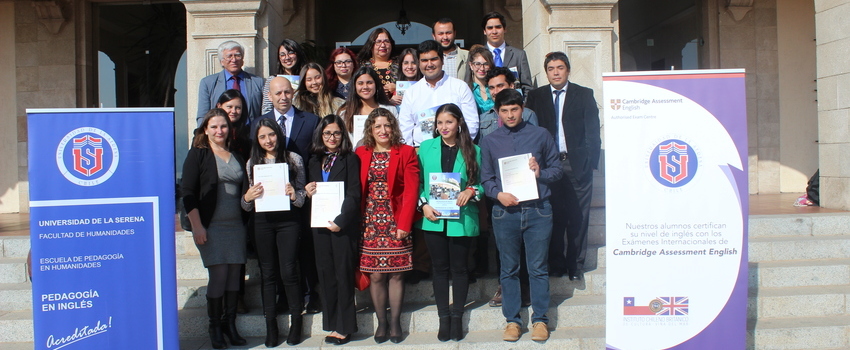
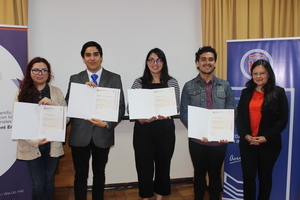 This year, 18 students in the undergraduate program received this important international certification. The test, which is taken at the end of the eighth level of the degree, allows us to identify the degree of perfection with which they use the English language.
This year, 18 students in the undergraduate program received this important international certification. The test, which is taken at the end of the eighth level of the degree, allows us to identify the degree of perfection with which they use the English language.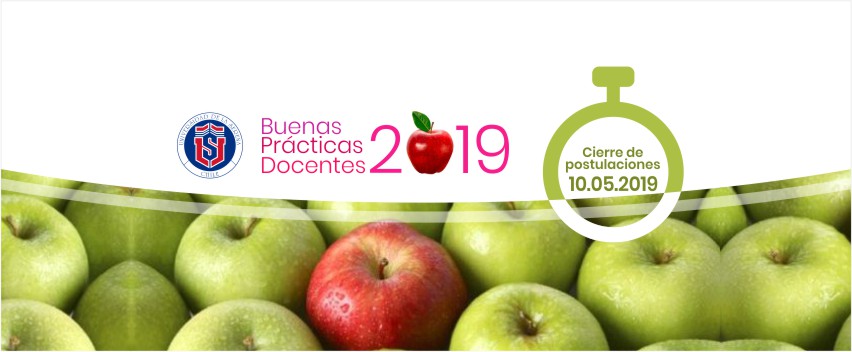
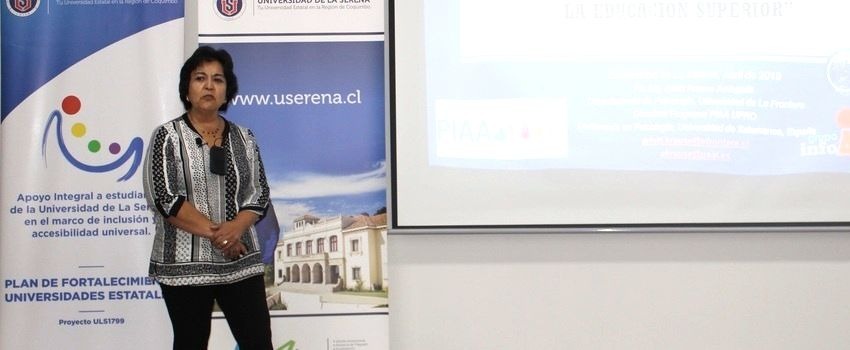
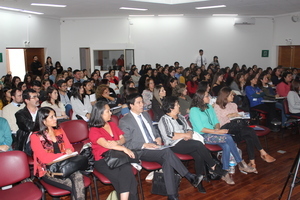 At the activity, which was attended by academics in the area and professionals who are experts in integration and inclusion, Krause stated that although “Chile has made progress in inclusion issues, there are still no guaranteed rights.”
At the activity, which was attended by academics in the area and professionals who are experts in integration and inclusion, Krause stated that although “Chile has made progress in inclusion issues, there are still no guaranteed rights.”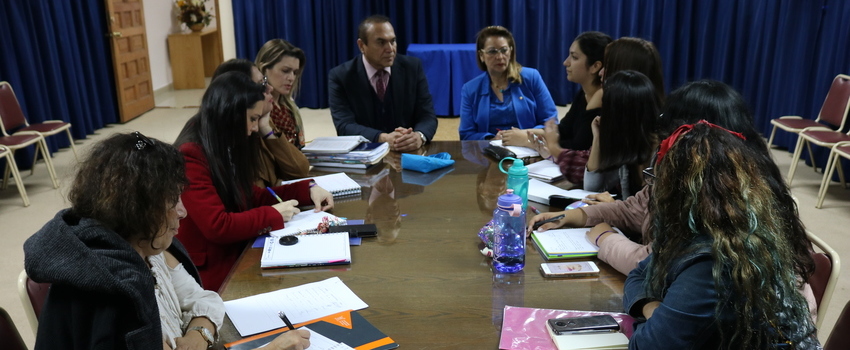
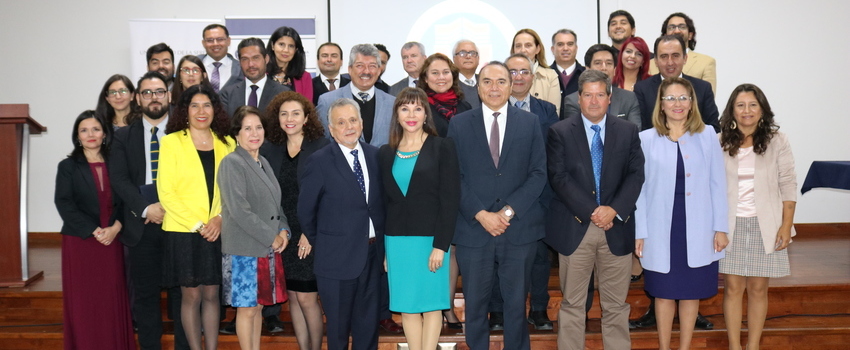
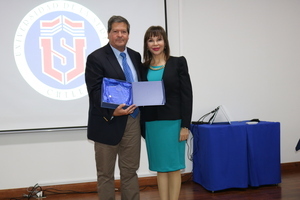 In the development of her speech, the Dean also added that “as a University and as a Faculty of Social and Economic Sciences, we are called to promote professional training, in contact with reality, above all, in contact with those who live most excluded from work. social, economic and cultural. On this path, we must continue moving forward, because we have institutional and career self-assessment ahead of us. In this project, it is important to unite and value the effort that each and every one of us puts into their respective actions and objectives. Our university community has managed to move forward and make this university a prestigious institution, recognized nationally for its quality,” she concluded.
In the development of her speech, the Dean also added that “as a University and as a Faculty of Social and Economic Sciences, we are called to promote professional training, in contact with reality, above all, in contact with those who live most excluded from work. social, economic and cultural. On this path, we must continue moving forward, because we have institutional and career self-assessment ahead of us. In this project, it is important to unite and value the effort that each and every one of us puts into their respective actions and objectives. Our university community has managed to move forward and make this university a prestigious institution, recognized nationally for its quality,” she concluded.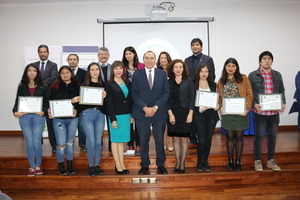 Special guests
Special guests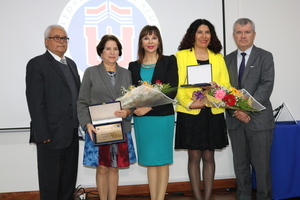 It should be noted that the Faculty has two academic departments: Social Sciences and Economic and Business Sciences and the schools and careers of Auditing, Commercial Engineering, Pedagogy in History and Geography, Journalism, Engineering in Business Administration and Law. Each of these units carries out collective work in favor of positioning the Faculty as an important actor in the achievement of objectives and training of excellent professionals of the University of La Serena.
It should be noted that the Faculty has two academic departments: Social Sciences and Economic and Business Sciences and the schools and careers of Auditing, Commercial Engineering, Pedagogy in History and Geography, Journalism, Engineering in Business Administration and Law. Each of these units carries out collective work in favor of positioning the Faculty as an important actor in the achievement of objectives and training of excellent professionals of the University of La Serena.